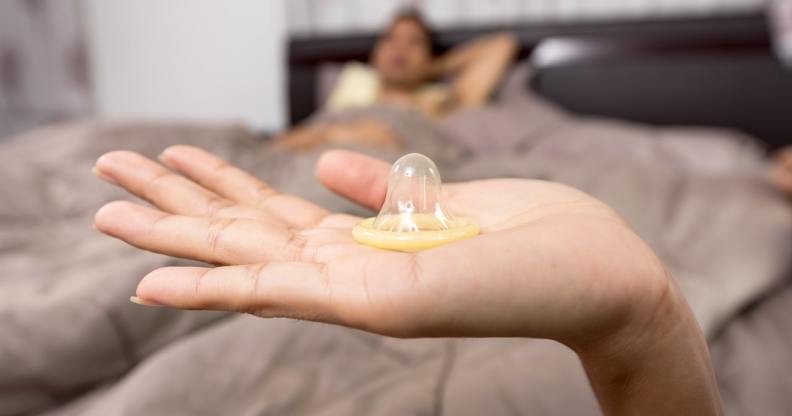Bisexual people who are fully out are having worse sex, and researchers think it’s due to bi-erasure

Pexels
Bisexual people in mixed-gender relationships who are fully out to family, friends and their partner experience less sexual satisfaction, new research has found.
The research – which was presented at the Scientific Study of Sexuality annual conference last week – also found that bi people’s partners report greater satisfaction when their partner is out.
Researchers have linked the surprising results to bi-erasure – the feeling that their identity is being erased – when they are in a relationship with a person of another gender, Insider reports.
Bisexual people who felt that their identity was not recognised also experienced less romantic and sexual satisfaction.
To compile their results, researchers surveyed 142 mixed-gender couples where one partner was bisexual and one was not. They were then asked about their feelings of romantic and sexual satisfaction in their relationships.
Researchers found that the happiness of the bi person in a relationship – as well as the happiness of their partner – depended on a number of criteria.
Bisexual respondents who are out to their families reported lower levels of sexual and romantic satisfaction, as did participants who felt that their identities were not being seen or recognised.
If the bisexual partner felt more negative towards their identity, then their partner experienced higher levels of sexual satisfaction.
Speaking at the conference last week, researcher Laura Vowels said that out bisexual people may find themselves unhappy in relationships because family members may not have been accepting of their sexuality. This, she suggested, could lead to dissatisfaction in a relationship.
Meanwhile, Vowels was surprised at the results for non-bisexual partners.
“If the bisexual partner felt more negative towards their identity, then their partner experienced higher levels of sexual satisfaction,” she said.
Previous studies have suggested that bi-erasure could be extremely damaging.
She suggested that this could be related to outdated stereotypes about bisexual people – such as the view that bi people are promiscuous. Therefore, non-bisexual partners may see their partner’s negative views about their own identity as meaning they are less likely to leave the relationship.
The study comes just weeks after another researcher wrote an article in which she said that bisexual people suffer from “minority stress” which contributes to poor health.
Sabra Katz-Wise, writing for Harvard Medical School, wrote that outdated stereotypes, such as the view that bisexuality is a “phase,” can lead to negative health outcomes.
“A bisexual woman who is in a relationship with a woman, but also has sex with men, may not be offered birth control or counselling about sexually transmitted infections (STIs) at a doctor’s appointment, because she is (incorrectly) assumed to be a lesbian and not at risk for pregnancy or STIs.”

